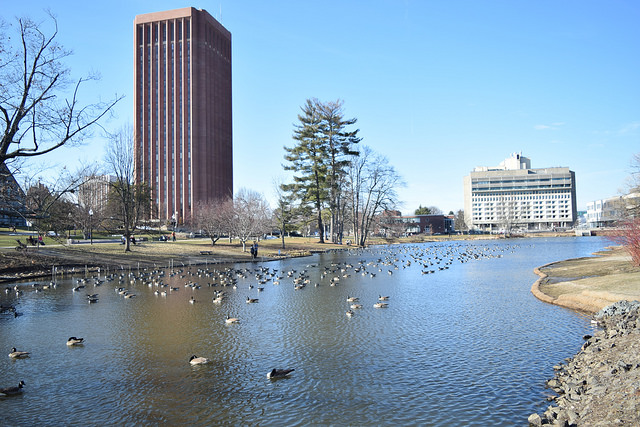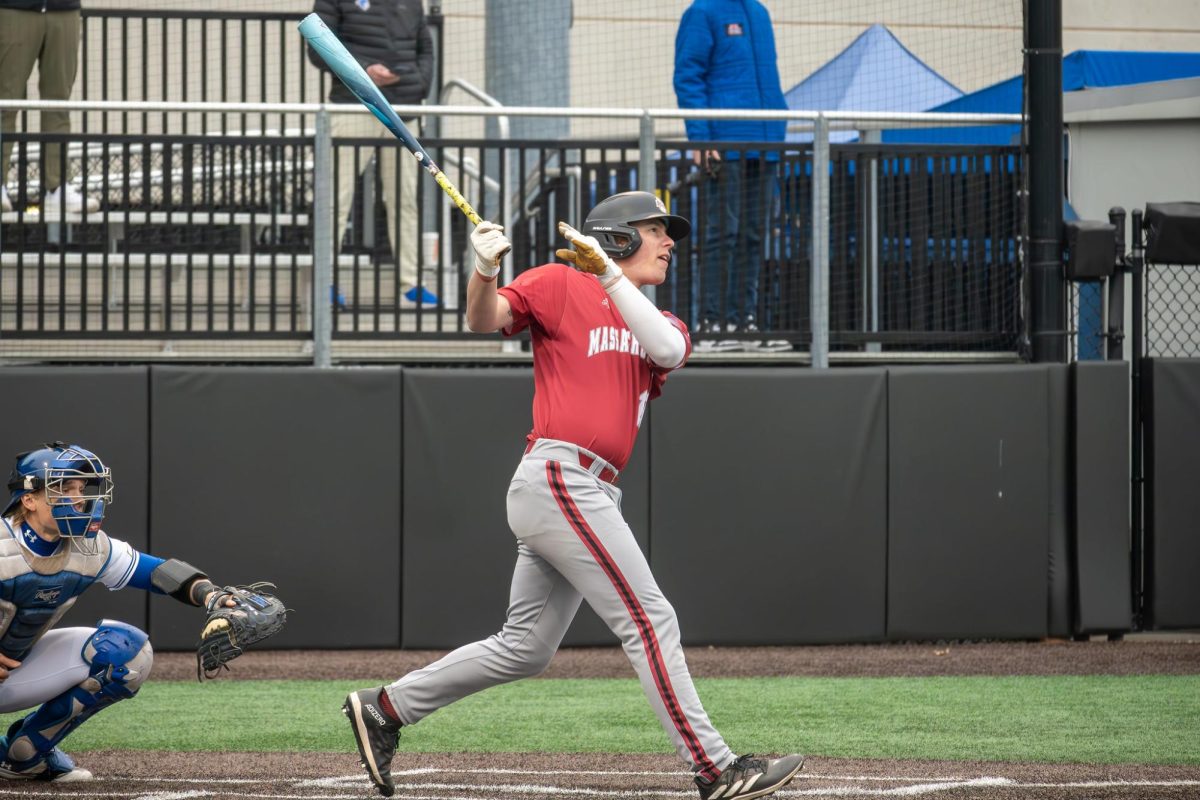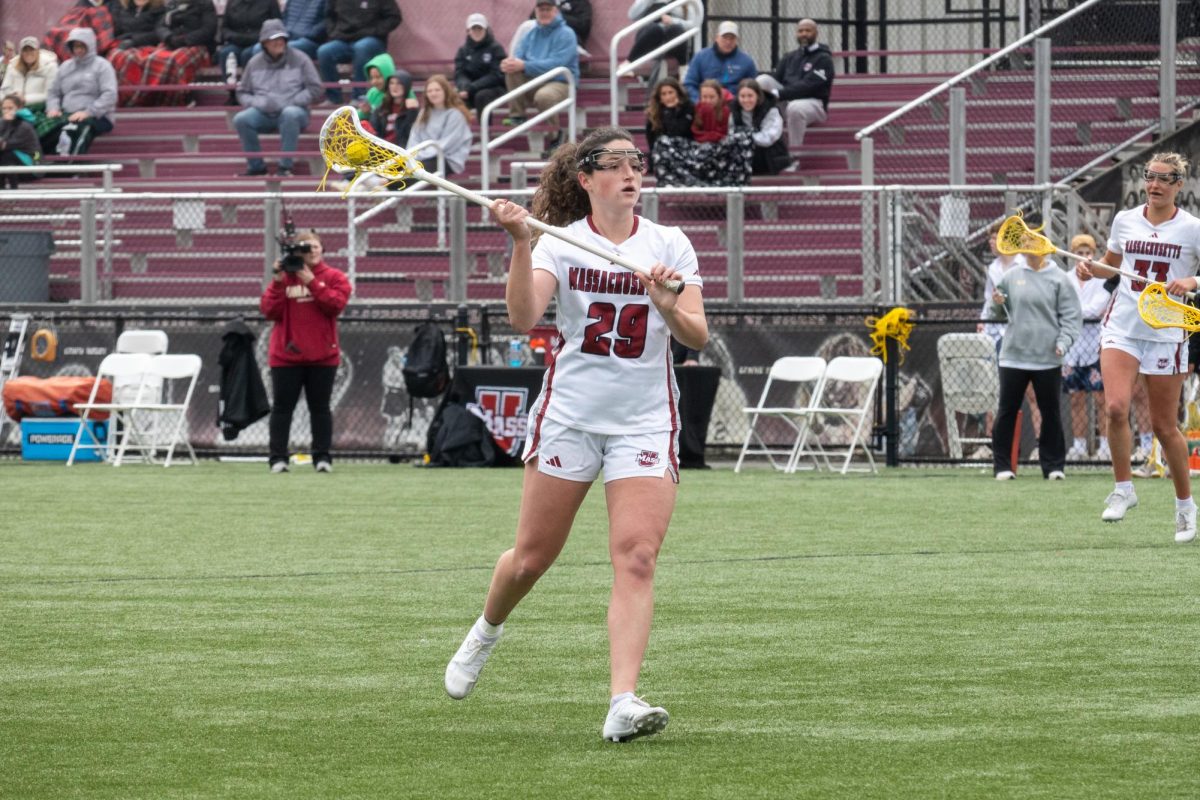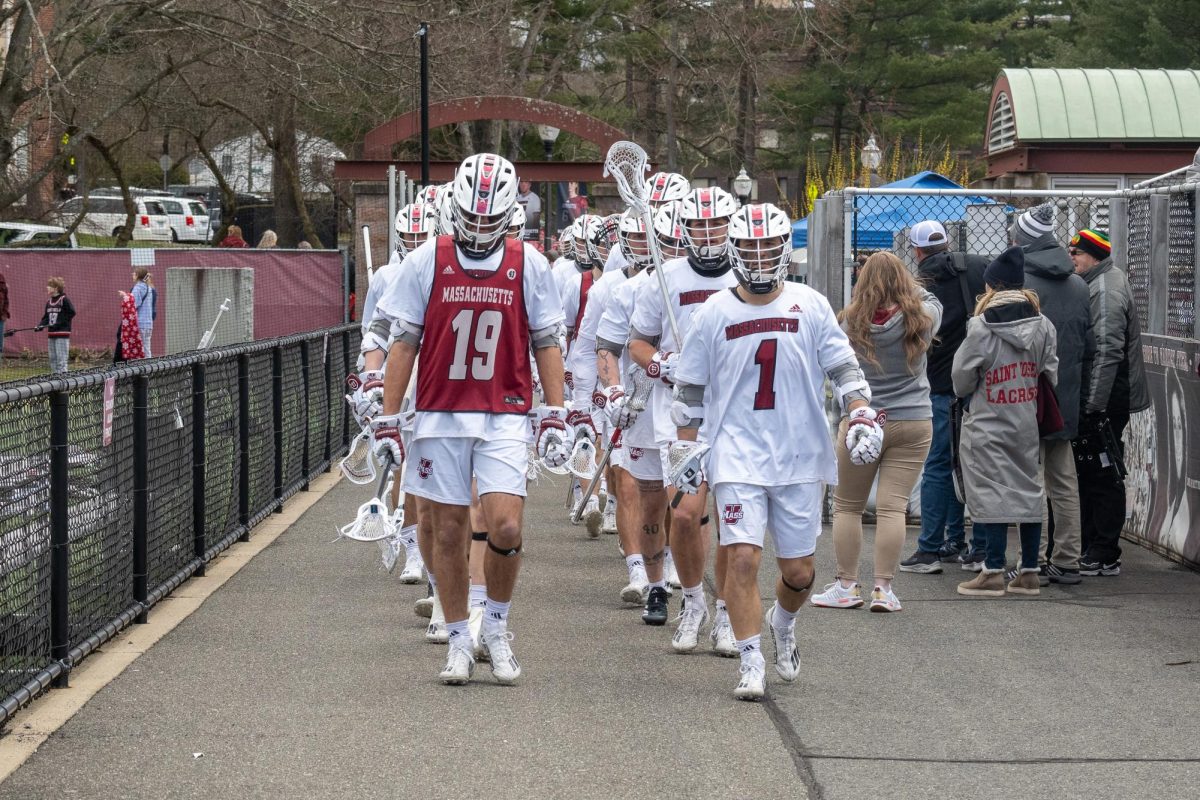In the Student Union Cape Cod Lounge on Monday, four panelists discussed attempted utopian societies of the past and what they mean in the present in the fourth lecture of the 2018 Feinberg lecture series.
This year’s lecture series is titled “Another World is Possible: Revolutionary Visions, Past and Present,” a reference to the rallying cry of the Zapatista Army of National Liberation, a leftist libertarian-socialist political militant group in Mexico. The fourth lecture, called “Imagining Community, Living in Community,” focused on utopian communes that tried to realize transformative visions and live with moral clarity in an oppressive world.
Professor Sigrid Schmalzer of the University of Massachusetts history department served as moderator for the panel and introduced the subject by noting that “reimagining social and political relationships is no simple matter.”
“In the process of trying to imagine new communities, there exists the possibility of creating new forms of injustice,” Schmalzer said.
The first speaker of the event was Ousmane Power-Greene, an associate professor at Clark University. Power-Greene discussed a 19th century utopian commune that was founded in Northampton known as the Northampton Association of Education Industry. The Association was described with the term “Afrotopia” by Power-Greene, emphasizing the priority of the group, mostly fugitive slaves, who sought to establish a society in which all members held equal rights. The commune collapsed after the passage of the Fugitive Slave Act in 1850, but it symbolized something bigger: Power-Greene said that African Americans “imagined something more than living in the racist society where they were born and struck out for a land where their dreams could be realized.”
The concept of an exclusive commune in the hopes of achieving a better society was continued by second speaker Lior Libman, an associate professor from Binghamton University. She discussed Israeli communes known as Kibbutz, which are now in the process of being privatized, but where she grew up as part of the fourth generation of inhabitants. The Kibbutz were founded by what Libman called “practical Zionists,” keeping their Jewish culture but not observing the faith. In establishing the Kibbutz, the members sought to create a “New Jew” who was strong, independent and rooted in a community of their own. Those who live in the Kibbutzim say they are committed to the fraternity of all people, and only Jewish Israelis have ever been members.
“How do we build a model society on the bones of the Palestinians?” Libman said, shrugging.
Kate Daloz, the third speaker, discussed hippie communes of the 1970s, her main area of study as an author and historian. Daloz, wearing bright orange flats, explained how these communes largely originated from the conflict between the time of the Eisenhower presidency, where there was great optimism and confidence, and the fear of Cold War messages. Young, affluent white people reacting to this conflict created a huge surge of counterculture that lasted several decades. Daloz laid out how the privileges of wealth, economic connections and a class-inherent sense of self-preservation allowed those communes to survive for as long as they did.
The fourth and final speaker was Jasmine Burems, the only grassroots activist on the panel. Burems is a cofounder of Wildseed Community Farm and Healing Village, a liberal, modern-day commune located two hours outside New York City. She discussed the history of the Black community in the United States, and at several points had to pause because she was near tears.
“We’re really nourishing and nurturing the future,” she said.
When asked about how she had managed to maintain the compound thus far, Burems said simply, “We ask for support when we need support.”
Several members of the audience connected with Burem’s discussion closely. Jasper Cowley, a junior BDIC student studying community organizing, said “a lot of her values correlate to mine,” and that he “definitely connect[s] to her mission and her goal.”
Gwendolyn Greene, the mother of panel member Power-Greene, also thought that Burems was the most significant, as she “was the only grassroots member.”
“I thought there’d be more grassroots activists,” Greene said.
The talk left some audience members with a rare hope for the future. Cowley said he was excited to see “where our society really could go in the future, and how people could live better than they do now.”
Ellena Baum, a member of the Amherst community, said that she couldn’t wait to “continue learning about the really really local history about where we are…just keeping the momentum going and seeing the movement go.”
“It’s an alternative to the dominant, patriarchal, heteronormative, commodified relationship with the land and the possibility for something else,” Baum said. “It’s messy, but we’re still trying.”
Mickey Fox can be reached at [email protected].



















